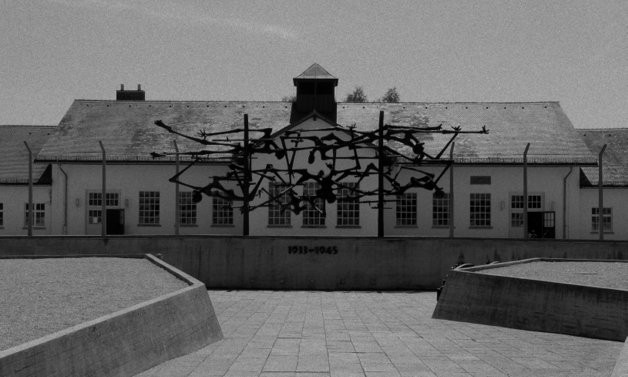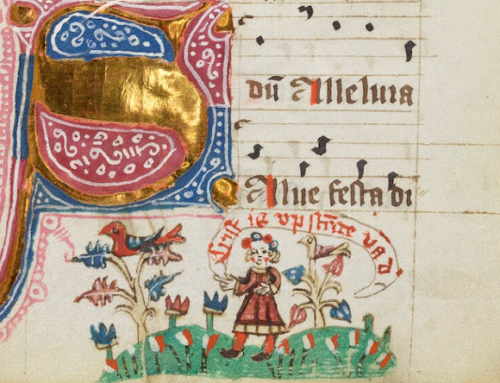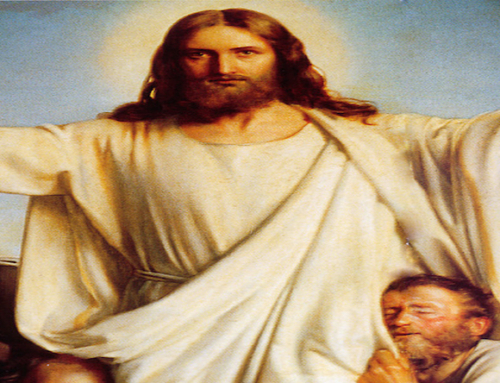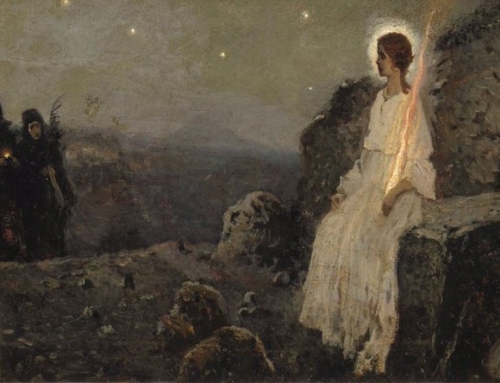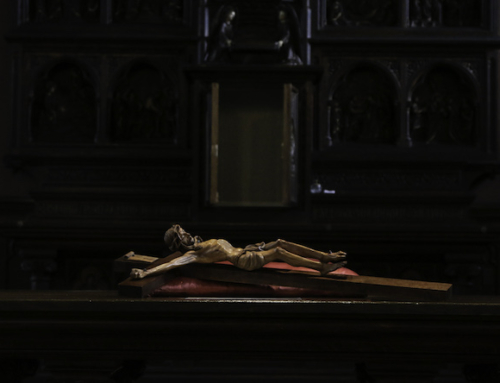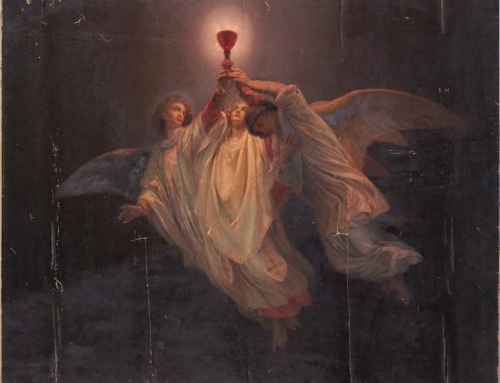On Good Friday 1940, the Nazi SS Guards of Dachau Concentration Camp found pretext to punish sixty-some priest-prisoners with an hour on “the tree.” One former Dachau prisoner describes the torture saying, “They tie a man’s hands together behind his back, palms facing out and fingers pointing backward. Then they turn his hands inwards, tie a chain around his wrists and hoist him up by it. His own weight twists his joints and pulls them apart.” The barbaric aptitude of the guards of Dachau incarnated the demonic for the some 2500 priests condemned to incarceration in the camp during the years 1933–1945. Priests were crowned with crowns of barbed wire while groups of Jewish prisoners were forced to hail them as kings. Guards mocked, spat upon, and forced priests to carry railroad ties, all in imitation of the crucified Lord.
Every passing day in that camp must have made all-too-real the wickedness and cruelty of Good Friday for those seemingly forsaken prisoners. Good Friday is the only calendar day during which priests do not offer the sacrifice of the Mass. Intermittently denied the ability to celebrate the sacraments, the priest-prisoners found themselves scrounging for scraps of bread to consecrate in clandestine Masses, often going long periods without the sacraments. The few luxuries they were allowed (extra helpings of food, permission to gather for prayer, etc.) evoke the comforts offered Christ during his passion, such as Veronica wiping his face or Simon helping to carry his cross. Even these comforts though were used against the priests, as the rest of the camp’s prisoners envied the liberties occasionally accorded them, making the priests despised even by the other prisoners: not unlike the rejection Christ endured from the angry mob.
To be sure, not all of the priest-prisoners of Dachau were saintly men—some were actually notorious criminals—but some of Dachau’s resident clergy have been held up as model Christians by the Church, worthy of public veneration. One such priest is the relatively obscure Italian Dominican friar Giuseppe Girotti.
Fr. Giuseppe—a former student of the Servant of God Père Marie-Joseph Lagrange, OP—taught scripture and theology at the Dominican school of theology in Turin (S. Maria della Rose). He was universally beloved by his students. Fr. Giuseppe’s chef d’oeuvre, on the book of Isaiah, includes a detailed study of the beautiful passages on the Suffering Servant, passages applied in the New Testament to Christ in order to interpret his suffering and death on the Cross. After Italy changed course to collaborate with the Allies in 1943, Fr. Giuseppe dedicated himself to aiding the Jews of Italy. Having studied in Jerusalem, he had a great respect for the Jewish people, whom he fondly called “elder brothers” and “carriers of the word.” When asked once about his work, he candidly said, “Everything I do is for charity.” Nevertheless, his illegal work on behalf of the persecuted Jews was eventually discovered. Fr. Giuseppe’s own via crucis (way of the cross) began on August 29, 1944, when he was betrayed, like his Master, and handed over to the police.
From the prison in Turin, Fr. Giuseppe was transferred to Milan, then to Gries, finally arriving at Dachau. As Isaiah says, “Like a lamb led to slaughter or a sheep silent before shearers, he did not open his mouth. Seized and condemned, he was taken away. Who would have thought any more of his destiny?” (Isa. 53:7-8). In the midst of the horrific conditions of the camp, during the cold of the winter of 1944–1945 Fr. Giuseppe often said, “We have to prepare to die, but peacefully, with lighted lamps and the happiness of the saints.” On Christmas he gave two lectures on the theological virtues, and was known for regularly teaching his fellow inmates about Sacred Scripture. Fr. Giuseppe fell ill from the camp’s inhumane state, and was transferred to the infirmary. He died there on Easter Sunday, 1945. It is assumed his life was extinguished by a lethal injection of gasoline, as was the common practice of the Nazi prison camps. “Because of his anguish he shall see the light; because of his knowledge he shall be content” (Isa. 53:11). When word spread through the camp that he had died, a fellow prisoner carved into his empty bed the words, “Here slept Saint Giuseppe Girotti.”
Fr. Giuseppe will be formally beatified on April 26, the day before Bl. John XIII and Bl. John Paul II will be canonized saints. Fr. Giuseppe’s remarkable, humble witness of charity stands in stark contrast to the forces of evil which tormented him. This is the self-effacing embrace of the passion we memorialize on Good Friday, the day of the death of Christ, the Suffering Servant. In the words of the Prophet Isaiah, “Yet it was our pain that he bore, our sufferings he endured. We thought of him as stricken, struck down by God and afflicted. But he was pierced for our sins, crushed for our iniquity. He bore the punishment that makes us whole, by his wounds we were healed” (Isa. 53:4-5). Through his own passion, Fr. Giuseppe participated in Christ’s redemptive suffering for the sake of the Church (see Col 1:24). His entrance into eternal life on the glorious day of the Resurrection sheds a ray of hope in a dark world that one day will be transformed through the saving promise of Christ’s sacred Paschal Mystery.
✠
Image: Dachau, used under CC BY / Cropped and rendered B&W from original

